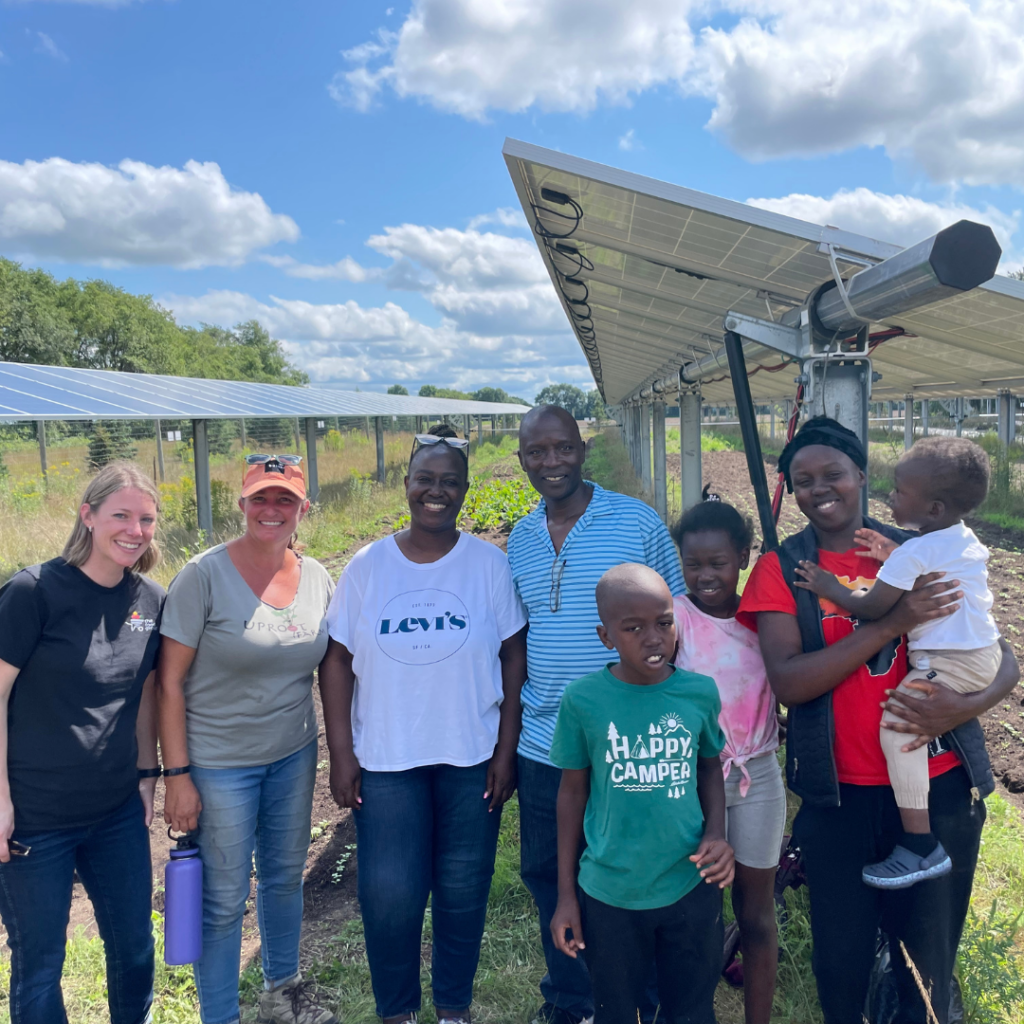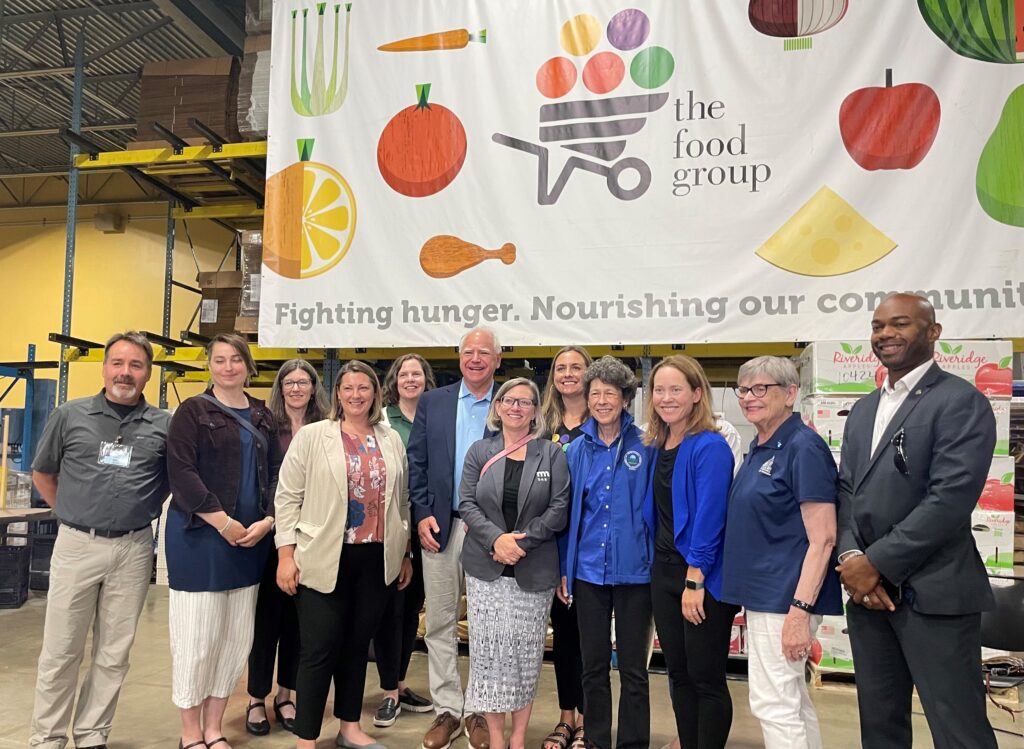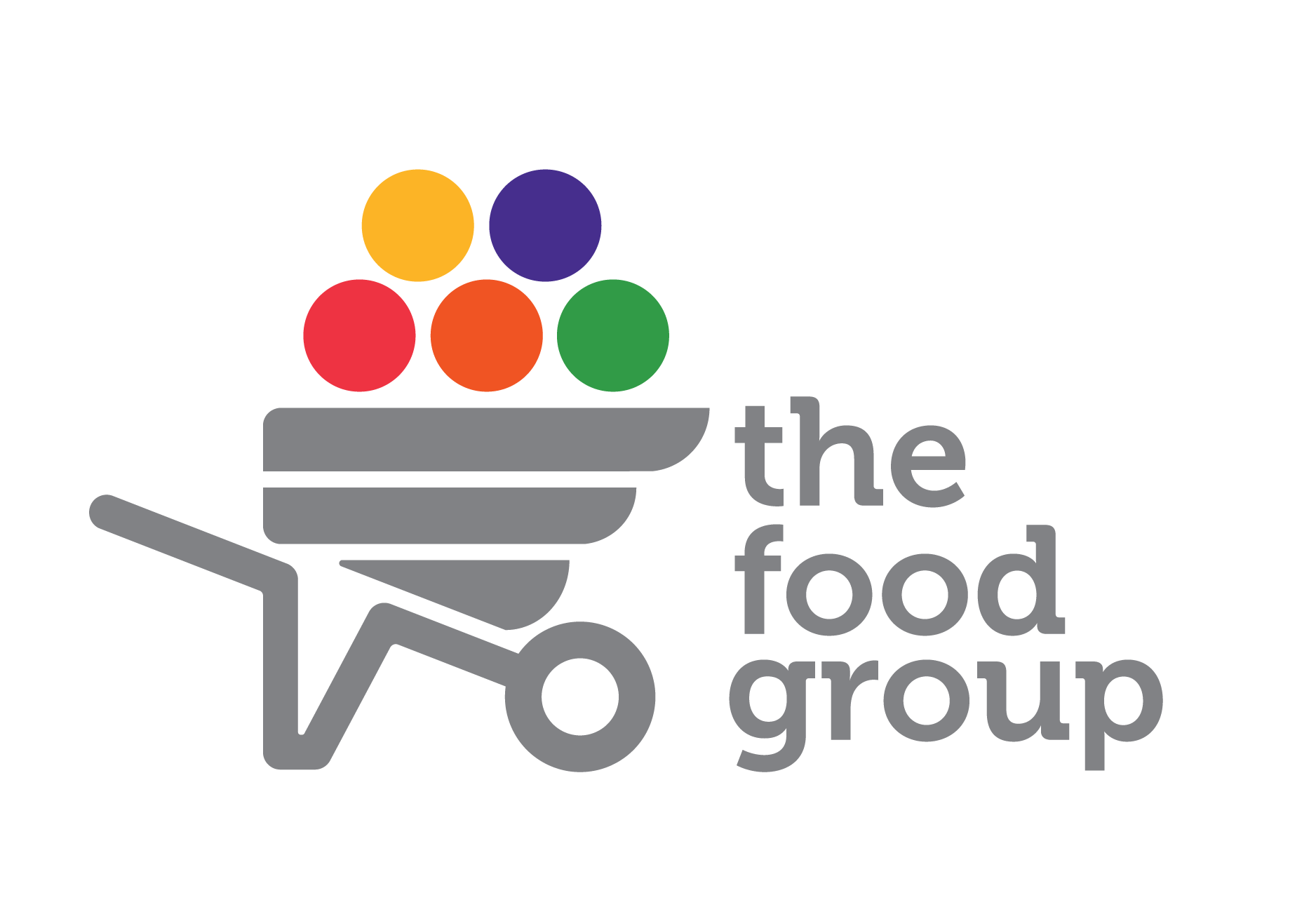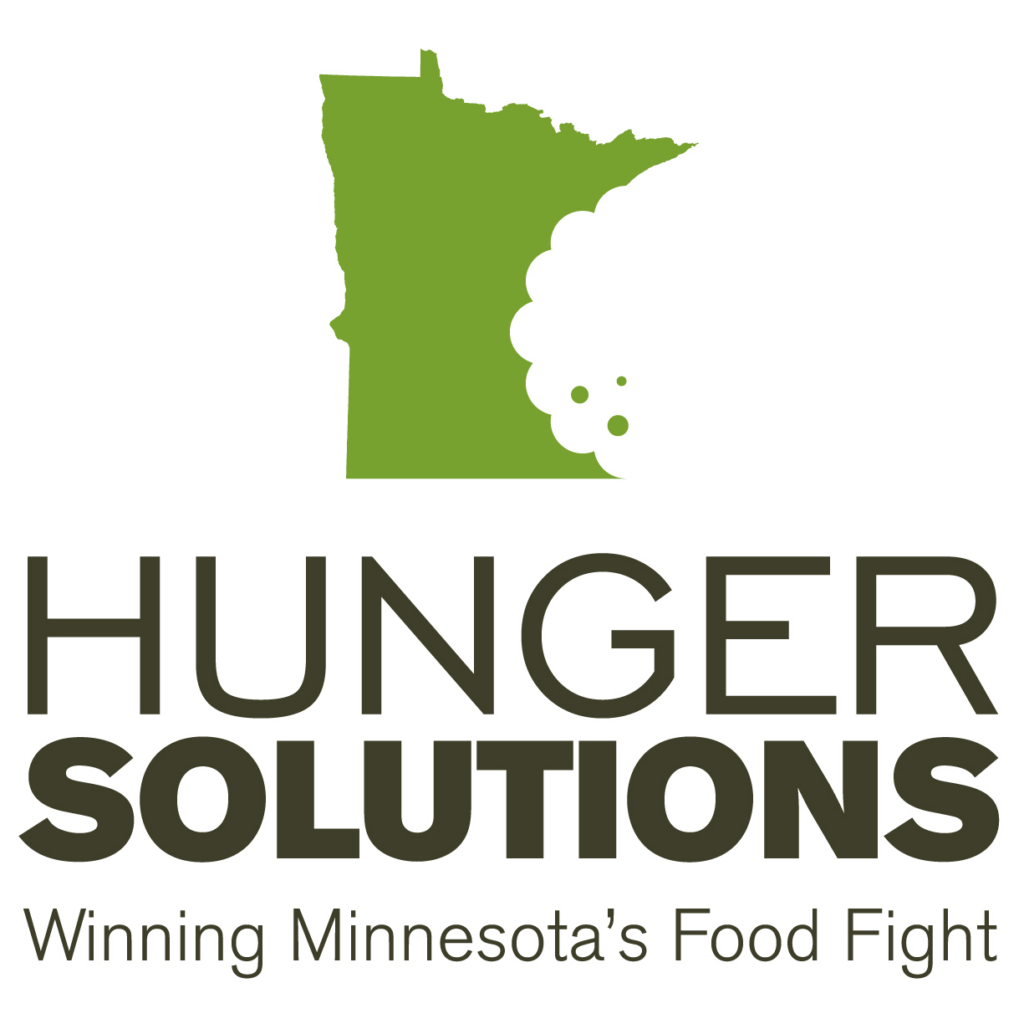Something we think about a lot at The Food Group is how we can embed more climate-smart strategies into the work we do. Sustainable agriculture is not just a buzz word — the farmers we work with through our Big River Farms program see the results of our changing climate in real time, from last year’s drought to this year’s excessive rains. By implementing climate-smart strategies, we can improve our food system while helping farmers prepare for the future.
The first thing that often comes to mind is how we grow our food. Our agricultural practices have an undeniable impact on our environment, and additionally, there are many ways our food system has a significant impact. From food waste prevention, to sourcing locally, to the type of transportation we use to get food to families across Minnesota, The Food Group is committed to building innovative practices that support both our environment and a more just and equitable food system.
Growing Our Food Sustainably


We deeply value regenerative agriculture and investing in emerging farmers through education at Big River Farms, the Emerging Farmers Conference, and our agrivoltaics pilot project. Our programming supports land access for farmers, farm resources, and education to build their businesses, learn, and grow sustainable, organic foods. Our educational programming focuses on soil health, biodiversity, pollinator habitats, and more. Throughout our program, we’re intentional about serving historically underserved farmers. In 2023, we supported more than 200 farmers with our programming.
We’re currently piloting agrivoltaics work, the practice of farming under and around solar panels, in Big Lake, MN in collaboration with US Solar for annual vegetable production viability as well as in Ramsey, MN in collaboration with Connexus Energy for perennial production viability. We have a solar cooler at the farm that’s both energy-efficient and mobile, making it an innovative way to increase capacity for produce storage.
Agrivoltaics has the potential to support both emerging farmers through creating land access and local food production while benefiting the environment through green energy dual land use. In addition to US Solar and Connexus Energy, we collaborate with National Renewable Energy Laboratory, The University of Minnesota, Great Plains Institute for Research, and the MN Department of Agriculture, and as the project continues we’re learning more and more about which crops best thrive on these kinds of solar farms.
“It makes the food system stronger,” said KaZoua Berry, our farm director, about the project. “We are not just taking from the land, we are giving back to the land. We are not only harvesting, we are doing stewardship. When we build a healthy relationship with the land, we will have a better food system, better land and environment for our children and the future generations to come.”
A Healthy Harvest

Gleaning is another way we commit to sustainable agriculture practices. “Gleaning” is a term for gathering excess fresh food from farms and markets to provide it to people experiencing hunger. As part of our Produce Reclamation Program, we harvest and collect excess produce from various farms and orchards and redistribute it to our food shelf partners. We also are at the Minneapolis Farmers Market during the summer months to collect produce that farmers are not able to sell.
All of this is produce that would otherwise be wasted but is repurposed to support our neighbors in need.
Local Sourcing & Cleaner Transportation

Another way we commit to climate-smart processes is by sourcing primarily locally made products to be distributed to our food shelf partners. Most of the local sourcing we do at The Food Group is to support these important anti-hunger programs, and by choosing local we’re able to cut down the time and resources it takes to get nutritious foods onto our clients’ tables — a win-win for emerging farmers, the environment, and our neighbors in need.
Even our Affordable Grocery programs keep sustainable practices in mind. Our Twin Cities Mobile Market (TCMM) program is a grocery store on wheels that travels to neighborhoods that don’t have easy access to affordable and healthy foods. Our newest TCMM bus is propane-powered, making it an eco-friendly alternative to other vehicles.
Celebrating Investments in the Future
We recently hosted Governor Tim Walz and other state leaders to demonstrate our organization’s commitment to this cause, and we look forward to reinforcing this commitment through our continued work. We continue to strategize for the future, and one of the initiatives we’re exploring is adding solar panels on our roof to be more energy-efficient. We’re also very grateful for the investment being made in climate-smart food systems by the EPA, an investment that was recently announced.
“As this work shows, there are a lot of opportunities to create climate-smart strategies throughout our food system,” said Sophia, our executive director. “All of us at the Food Group, including our community partners, are looking forward to seeing this project unfold, just knowing that this is going to result in long-term, impactful change for Minnesotans and our climate.”




You must be logged in to post a comment.